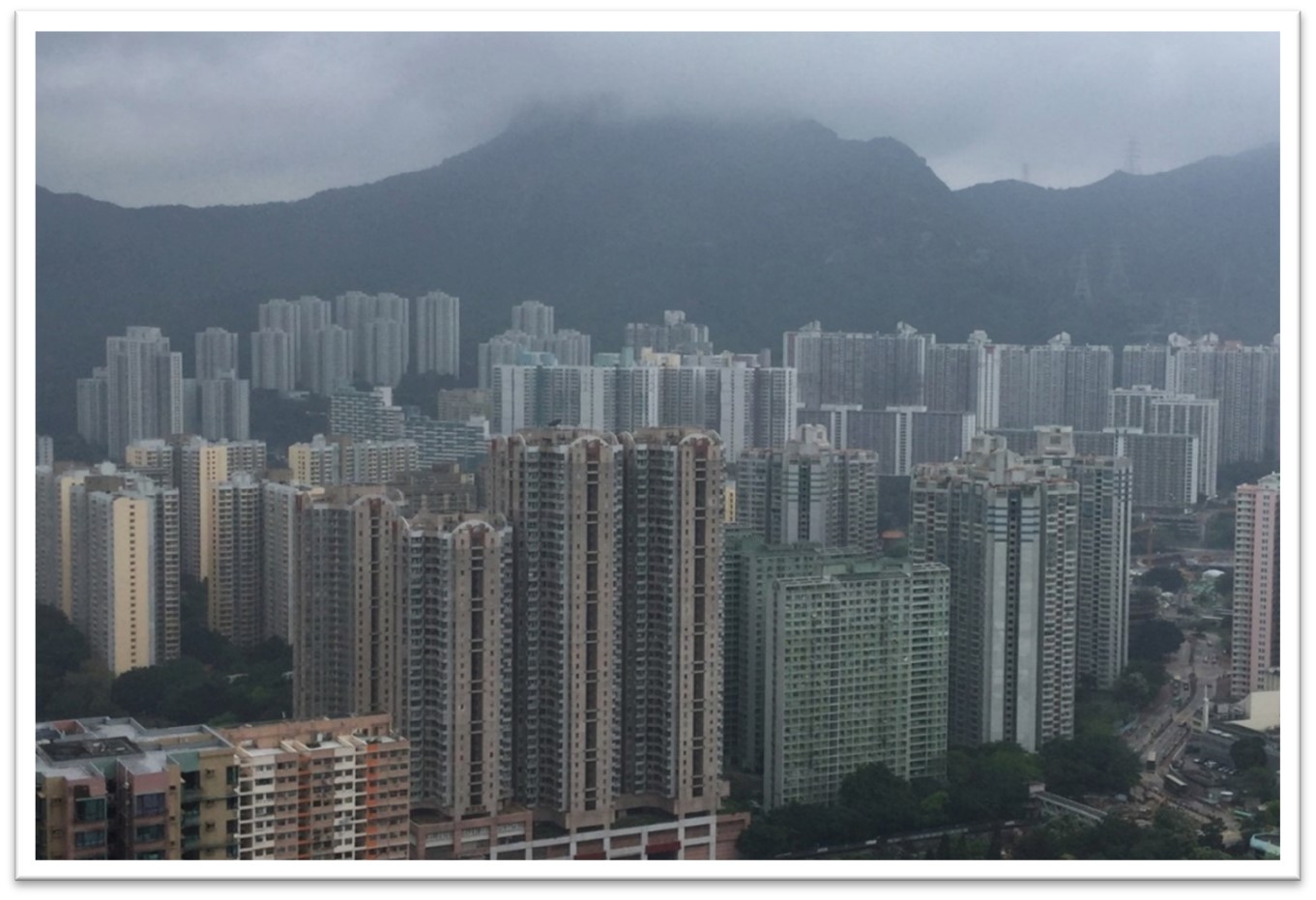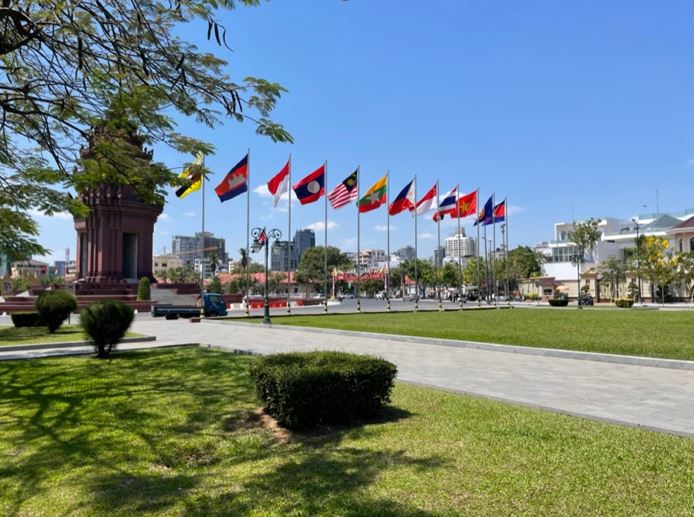My PhD research explores the impacts of territorial stigmatisation on shaping working-class culture and identity in public housing estates in neoliberal Hong Kong. From 2015 to 2019, I gained access to Immortal (the nicknamed neighbourhood where my family had settled for four generations) and collected data from a group of public housing residents who shared similar views on and experiences of stigmatisation with me, by ways of group observations and individual interviews. However, when I intend to go beyond my known knowledge of the field where I have been a part of, I find ethnographers’ reflexivity is more useful and insightful than knowledge positionality, writes Jason Yan
_______________________________________________
Ethnographers, who study working-class communities and cultures, have rested on a realist methodological conception of the ‘self-other’ dichotomy, trying to shorten the social distance arising between the researchers’ ‘selves’ and the researched ‘others’ by conducting ethnographic investigations. Specifically, this methodological conception that justifies the necessity of field study and the credibility of field knowledge has implied an epistemological assumption that the working-class ‘others’ (in the insider positionality) are more superior in making sense of the field (their communities and cultures) than the ethnographers (in the outsider positionality). My PhD research explores the impacts of territorial stigmatisation on shaping working-class culture and identity in public housing estates in neoliberal Hong Kong. From 2015 to 2019, I gained access to Immortal (the nicknamed neighbourhood where my family had settled for four generations) and collected data from a group of public housing residents who shared similar views on and experiences of stigmatisation with me, by ways of group observations and individual interviews. However, when I intend to go beyond my known knowledge of the field where I have been a part of, I find ethnographers’ reflexivity is more useful and insightful than knowledge positionality.
The Setting
The District Council that Immortal falls within remains one of the most deprived districts in terms of per capita household income, level of educational attainment and living density (see Illustration 1). It is a place of many disadvantages. According to the 2011 Hong Kong Population Census, the median household income, post-secondary educated population, and population density are, respectively, $10,000/ month, 17%, and approximately 83,000/km2, whereas the equivalent statistics for the entire territory are, respectively, $25,000/month, 24% and 6,500/km2. From the 1950s to the 1990s, Immortal had been highly industrialised, where most residents were involved directly and indirectly in manufacturing productions for the nearby factories. Having experienced a long historical period of economic restructuring and housing regeneration, Immortal residents, despite being sheltered and employed, nowadays suffer from severe overcrowding, insufficient facilities and difficult working conditions made worse by low monthly incomes. Regardless of the social sufferings, Immortal residents are negatively associated with ‘housing scroungers’ (greedy and dependent) and ‘poor savages’ (untouchable and uncivilised) because of who they know and where they live.

My Known Knowledge from Family Education
My knowledge of poverty, stigma and public housing estates originated from my grandmother’s stories when I was a child. At the end of World War II, school services were either limited or unaffordable to most working-class families who laboured in factories for subsistence wages. Although all children were entitled to a free education before higher secondary school, almost all working-class students in my cohort (who qualified for low-income subsidies for stationery and transport) were only entitled to half-days of school before the age of twelve. Like other Immortal children who had dual-income parents, I was sent to my grandmother’s home for day-care whenever my parents had to work. Other than sharing her difficult experiences of the past, my grandmother also used to tell me how inferior and disrespectable it was to be poor and to live in public housing. I could not recall how many times I was inculcated in her dining room that,
It’s simply because we are poor, people, therefore, look down on us, and they even stay away from us, so we practically are no different from having no relatives or other friends. What’s the greatest shame is that we fail to compete for recognition! Remember, when you grow up, you must earn more money, buy a house and improve your living condition for the family.
Under these circumstances, I learned that being poor and living in public housing is to be excluded and looked down upon. Having acknowledged the disadvantages of poverty, I was also educated that I was responsible for my family’s pride and survival. I was told that being a manual or factory worker was a harsh and difficult life and that I should avoid the hardships of my parents if at all possible. Therefore, I should aim to earn a greater income through acquiring educational qualifications to alleviate the financial burdens of my parents by giving all of my income to my mother just as my mother and her siblings had done before to my grandmother. Hence, ‘studying harder, earning greater income, and giving money to my mother’ was the formula of being a good grandson that was instilled in me as a child. As an infant, I did not fully understand my grandmother’s sorrow, but I followed her teachings in the hope that my grandmother would become happier. As my grandmother repeated the above script from time to time on different occasions, her characters had been known negatively.
My Sources of Reflexivity from University Education
My sources of reflexivity came from my university education. I was unexpectedly admitted to university and became one of the few university graduates from my neighbourhood. During my undergraduate study, I read many sociological pieces of literature on public housing development, poverty culture and cultural class analysis through undertaking different courses on urban sociology, qualitative research methods and social stratification and inequality. I was particularly influenced by Oscar Lewis’s Five Families: Mexican Case Studies in the Culture of Poverty (1959); Beverley Skeggs ‘Formations of Class and Gender (1997); and Mike Savage’s Class Analysis and Social Transformation (2000). Having benefited from my undergraduate education, I had grasped some of the basic theoretical tenets of the poverty, culture and class that influenced my upbringing. Although I had been working as a researcher and teacher in university since my graduation, it seemed too difficult for someone who had existed in a status of misrecognition to change rigorously and quickly. Harbouring self-doubts and hesitation, I lacked the confidence and capacity to articulate what I had learned into a single analytical framework until I had accumulated greater knowledge, had become more mature and had further widened my horizons during my doctoral studies in London. It was there that I read some texts that addressed issues of stigmatisation, such as Loïc Wacquant’s Urban Outcasts: Comparative Sociology of Advanced Marginality (2008) and Lisa McKenzie’s Getting By: Estates, Class and Culture in Austerity Britain (2015). The new ideas and people I met in London not only afforded me more reference points for my contemplations, but also offered other successful illustrations of sociological research for my research formulations. I, therefore, become more confident (but still not very) and capable of formulating my research agenda to study the relationship arising between territorial stigma and internal culture on the public housing estates in neoliberal Hong Kong.
My Renewed Field Knowledge from My Reflexivity
Having spent a great deal of time reflecting on staying with my grandmother and living in a poor neighbourhood of public housing, I have come to be much clearer on the formation and transformation of my ethnographic self both before and after my ethnographic investigations. Where I differ from other middle-class researchers is that I am perhaps uniquely positioned to study public housing estates in neoliberal Hong Kong because I come from Immortal, a typical neighbourhood specifically designed for low-income groups, public housing that suffers from poverty and exclusion due to territorial stigma. Given my residential status and extensive personal network, I saved a great deal of time in negotiating my field access with the gatekeepers and obtained access to a stigmatised group of public housing residents with relative ease. Regardless of the relevance of the case or the ease of access, I came to realise that I had been intellectually blinded in making sense of the social meanings behind the class stigma of public housing estates because my ethnographic self was delimited to the knowledge position of an observant participant, one who participates in the cultural issues of the neighbourhood rather than observing them as an impartial outsider. Having accessed my informants, I was frequently asked ‘What’s the point of studying the poor neighbourhood of Immortal?’ This may simply be because public housing estates have been socially considered to be ‘point zero’. In line with the thinking of informants, I found that I had neither previously considered that public housing estates could be a valuable topic for research nor understood how my individual experiences were interconnected with the wider social context. To be precise, I had no idea that my individual experiences could ever have triggered a social research agenda on class and stigma. Until this juncture, I had unconsciously accepted what had been imposed upon my neighbourhood, as I had lacked the cultural resources or conceptual frameworks to produce an alternative narrative.
Based on my sources of reflexivity, I find that my ethnographic self has evolved when I revisit my neighbourhood with an altered role from that of resident researcher, one who simply worked as a researcher but resided there, to a resident researcher, who purposely resided there while working as a researcher. Along with my changing role, the knowledge position of my ethnographic self had shifted from that of an observatory participant, who put participation before observation, to a participatory observer, who placed observation before participation. Just as my informants, I had once imagined that I knew the full picture of my neighbourhood as I was born and raised there. I was continuously told, ‘Why don’t you ask yourself? You’re supposed to know this in Immortal!’ when I started my ethnographic investigations. Having investigated precisely and triangulated carefully with different sources of ethnographic data, I now find that my knowledge of the field was either fragmented or incomprehensive. For instance, I knew the origin of my grandmother but had had no idea of her arrival story. I knew the neighbourhood through the residential experience of stigma, but I had neither been clear about the exact contents of the official narrative of public housing nor the actual proportion of the population and its density before I began to study Immortal seriously.
Although Immortal is a typical neighbourhood of public housing estates that are negatively viewed by the rest of society, I found that my selection of Immortal among several possible case studies was not purely based on its distinctive qualities, but rather on my personal preference. I noted that my upbringing enabled me to formulate my sociological inquiries into the class stigma of public housing through my personal experience of being devalued in Immortal. As C. Wright Mills (2000) suggested, I have drawn on my ‘sociological imagination’ to examine my individual experience within a larger social context of the effect of class stigma on place. Although the selection of Immortal as a case study was driven by personal interest, it does not mean that my sample has no sociological meaning. On the contrary, my attachments, in terms of primary socialisation and social bonds, has enabled me to cultivate my interests and guide me to study the class stigma of public housing estates, because Immortal is not only about my ethnographic field, but also an inseparable part of my life.
Further, I was socialised via my familial education as regards class stigma, but I was unaware of what the adults had meant to me was a part of the estate neighbourhood. When I place what I have been taught into the wider context of territorial stigmatisation, I come to understand the substantial meaning of the local phrase, ‘Ask not where heroes come from’ (jing hung mok man ceot cyu), which I have repeatedly heard my father say. The phrase simply means that we should not judge people by their origins and situation, but rather through their efforts and performance, because we know how prejudiced and unfair this can be. I came to understand, as I was reinstated with my family, the role and importance of parental and grandparental rule and the notion that children should support their family both socially and economically and strive harder at school so that they might earn better-paid positions and improve their family’s standing. I initially failed to consider that my family socialisation was not simply about following cultural norms, but also about learning the rules of survival until some of my ideological notions were displaced as I gained some further sociological insights from Oscar Lewis’s works on the function of poverty culture. I have come to understand that norms which were formed and passed down from older to younger generations are not built purely on customs, but rather transmitted substantial benefits. It is the way in which low-income parents were able to raise their children and senior citizens could prepare for retirement when welfare and pensions were otherwise not available.
Perhaps more importantly, I find that I have conflated memories of the past with the wrong people. I even realise that I had been unconsciously personalising social problems into my family and my informants. It was not until I developed greater intellectual insights that I began to consider my grandmother more fairly. Instead of misunderstanding her ‘retreating’ and ‘sensitive’ character, I realised that my grandmother was a hidden victim who was blamed, not because of bad behaviour, but because of her poor economic status and deprived residential address. She looked unhappy because she had suffered from too little social sympathy and too much social misrecognition. I am, therefore, interested in and relieved by Pierre Bourdieu’s notions of symbolic violence and misrecognition, because it has offered me some ways to understand the distinctive character of my grandmother within a wider social context.
Coda
When I look back to my ethnographic journey, I find I have unconsciously assumed I got better knowledge of the field (on issues of poverty, culture and stigma) than other researchers too because I studied the place and the people I had already known. It is until I have noted the evolution of my ethnographic self (my changing roles from researcher resident to resident researcher) in the field (the neighbourhood of public housing estates) that was driven by the cultural resources accumulated outside the field (from university education), I am allowed to go beyond my known knowledge of the field (from family education). In line with what Anthony Cohen (1994:4) has suggested, namely, ‘alternative anthropology of identity’, the consciousness to deny ‘the axiomatic difference between the anthropological self and the anthropologised other’, I argue that being conscious of the ethnographic position and sensitive to ethnographic encounters forms the epistemological foundations of ethnographic research and, as such, reinforces the quality and authenticity of my ethnographic account of public housing estates in Hong Kong.
References
Cohen, A. 1994 Self Consciousness: An Alternative Anthropology of Identity, London; New York: Routledge.
Wright Mills, C. 2000 The Sociological Imagination, New York: Oxford University Press.
______________________________________________
About the research
The content of this blog is based on the author’s PhD research in Hong Kong. The PhD research examines the impacts of territorial stigmatisation on making places, forming groups and shaping ways of life in the historical context of the neoliberalisation of public housing. It integrates a Bourdieusian approach of class with insights from Oscar Lewis’s theory of poverty culture and takes an actor-orientated perspective to make sense of how the residents develop everyday survival strategies, value their deprived neighbours and neighbourhood, and shape their residential aspirations when public concern and social empathy are either limited or absent. It suggests that revitalising public housing development via the destigmatisation of public housing estates is the most constructive way to build a fairer society in neoliberal Hong Kong.
For citation: Yan, J. (2021) Going Beyond Known Knowledge with Ethnographers’ Reflexivity in a Working-class Neighbourhood of Public Housing Estates in Neoliberal Hong Kong. Field Research Methods Lab at LSE (21 June) Blog entry. URL: https://blogs.lse.ac.uk/fieldresearch/2021/06/21/going-beyond-known-knowledge
*The cover image is by Dan Gold from Unsplash




